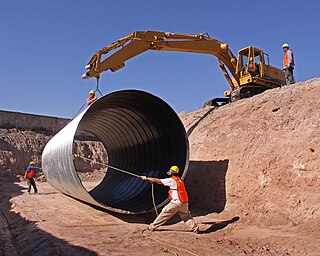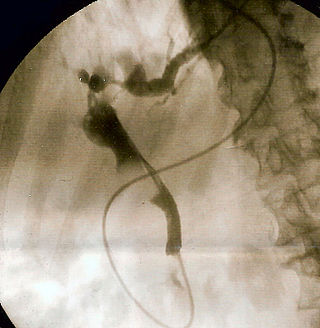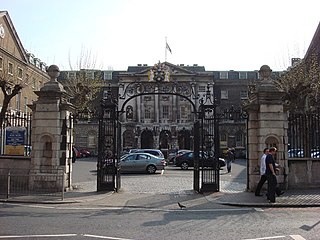
Workers' compensation or workers' comp is a form of insurance providing wage replacement and medical benefits to employees injured in the course of employment in exchange for mandatory relinquishment of the employee's right to sue his or her employer for the tort of negligence. The trade-off between assured, limited coverage and lack of recourse outside the worker compensation system is known as "the compensation bargain.” One of the problems that the compensation bargain solved is the problem of employers becoming insolvent as a result of high damage awards. The system of collective liability was created to prevent that and thus to ensure security of compensation to the workers.

United Kingdom labour law regulates the relations between workers, employers and trade unions. People at work in the UK can rely upon a minimum set of employment rights, which are found in Acts of Parliament, Regulations, common law and equity. This includes the right to a minimum wage of £9.50 for over-23-year-olds from April 2022 under the National Minimum Wage Act 1998. The Working Time Regulations 1998 give the right to 28 days paid holidays, breaks from work, and attempt to limit long working hours. The Employment Rights Act 1996 gives the right to leave for child care, and the right to request flexible working patterns. The Pensions Act 2008 gives the right to be automatically enrolled in a basic occupational pension, whose funds must be protected according to the Pensions Act 1995.

English tort law concerns the compensation for harm to people's rights to health and safety, a clean environment, property, their economic interests, or their reputations. A "tort" is a wrong in civil, rather than criminal law, that usually requires a payment of money to make up for damage that is caused. Alongside contracts and unjust enrichment, tort law is usually seen as forming one of the three main pillars of the law of obligations.
This article gives detailed information on the employment situation in Hong Kong.
The Transfer of Undertakings Regulations 2006 known colloquially as TUPE and pronounced TU-pee, are the United Kingdom's implementation of the European Union Transfer of Undertakings Directive. It is an important part of UK labour law, protecting employees whose business is being transferred to another business. The 2006 regulations replace the old 1981 regulations which implemented the original Directive. The law has been amended in 2014 and 2018, and various provisions within the 2006 Regulations have altered.

The Health and Safety at Work etc. Act 1974 is an Act of the Parliament of the United Kingdom that as of 2011 defines the fundamental structure and authority for the encouragement, regulation and enforcement of workplace health, safety and welfare within the United Kingdom.

Fairchild v Glenhaven Funeral Services Ltd [2002] UKHL 22 is a leading case on causation in English tort law. It concerned malignant mesothelioma, a deadly disease caused by breathing asbestos fibres. The House of Lords approved the test of "materially increasing risk" of harm, as a deviation in some circumstances from the ordinary "balance of probabilities" test under the "but for" standard.

Bailey v Ministry of Defence [2008] EWCA Civ 883 is an English tort law case. It concerns the problematic question of factual causation, and the interplay of the "but for" test and its relaxation through a "material contribution" test.
Vicarious liability in English law is a doctrine of English tort law that imposes strict liability on employers for the wrongdoings of their employees. Generally, an employer will be held liable for any tort committed while an employee is conducting their duties. This liability has expanded in recent years following the decision in Lister v Hesley Hall Ltd to better cover intentional torts, such as sexual assault and deceit. Historically, it was held that most intentional wrongdoings were not in the course of ordinary employment, but recent case law suggests that where an action is closely connected with an employee's duties, an employer can be found vicariously liable. The leading case is now the Supreme Court decision in Catholic Child Welfare Society v Institute of the Brothers of the Christian Schools, which emphasised the concept of "enterprise risk".
The Workers' Compensation Board of British Columbia, operating as WorkSafeBC, is a statutory agency that came into existence in 1917, after the provincial legislature put into force legislation passed in 1902. This legislation is known as the Workers Compensation Act.

Nokes v Doncaster Amalgamated Collieries Ltd [1940] AC 1014 is a UK labour law case about the common law before the Transfers of Undertakings Directive 2001 and the Transfer of Undertakings Regulations 2006. The case decided that an employee had to consent before a burden was placed on him by a change in employer.

The Employers' Liability Act 1969 is a UK Act of Parliament which requires that employers carry insurance against the personal injury of their employees.

Majrowski v Guy's and St Thomas' NHS Trust [2006] UKHL 34 is a UK labour law case holding that an employer will be vicariously liable for the harassment of an employee by another.

Occupational safety and health (OSH) or occupational health and safety (OHS), also known simply as occupational health or occupational safety, is a multidisciplinary field concerned with the safety, health, and welfare of people at work. These terms also refer to the goals of this field, so their use in the sense of this article was originally an abbreviation of occupational safety and health program/department etc. OSH is related to the fields of occupational medicine and occupational hygiene.
The Occupational Health and Safety (OHS) Regulation of British Columbia is the primary source of law governing workplace health and safety, which was most recently amended in 2016. It sets the standard to which workplaces must attain when inspected by WorkSafeBC, unless they are exempt from inspection, e.g. mines.

Kondis v State Transport Authority, was an Australian court case decided in the High Court of Australia on 16 October 1984. It concerned the liability of an employer for the injury of an employee, and specifically whether the duty of care to provide a safe system of work could be delegated. It had been challenged on the basis that the person whose negligence had directly caused the injury was not actually an employee, but an independent contractor, and the duty of care to provide a safe system of work had been delegated to them at the time of the injury. However, it was found that the duty of care could not be delegated in certain cases, and the employer was found liable.
The law for workplace bullying is given below for each country in detail. Further European countries with concrete antibullying legislation are Belgium, France, and The Netherlands.
Labour law regulates the legal relationship in Bulgaria between individual workers and employees as well as between coalitions and representative bodies.
Workers' compensation in the United States is a primarily state-based system of workers' compensation.

R v ACR Roofing Pty Ltd was a decision by the Victorian Court of Appeal in Australia. A construction company was engaged to complete works on a roof which were not meant to proceed without the installation of safety equipment. The company hired a worker employed by another company who died as a result of the safety equipment not being installed. The Court ultimately held the principal construction company liable under Victorian workplace health and safety legislation.












